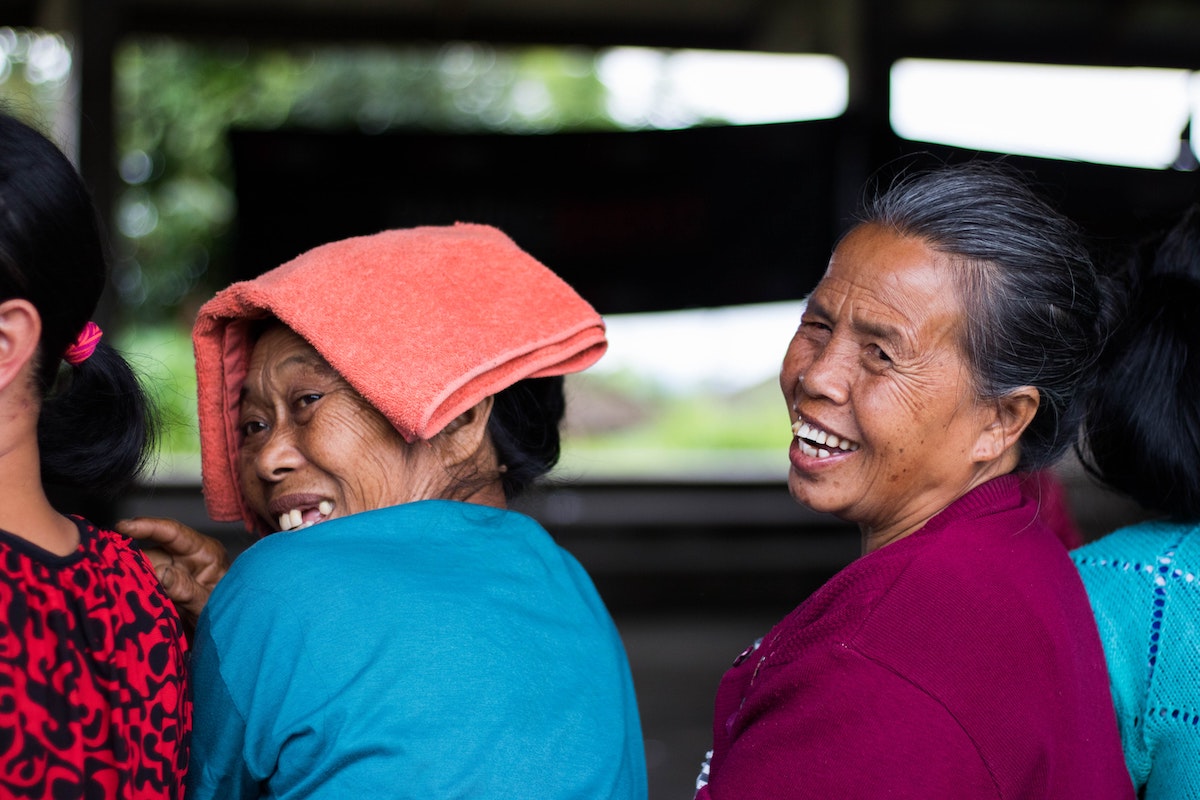Guest contribution by Silke Irmscher, Intercultural Trainer & Coach based in Indonesia, founder of Culturenergy
The Indonesian culture is rich, colorful and diverse – enough reason for many expats from all over the world to choose living in the island nation. We all know the beautiful pictures from travel guide books and relocation journals: Smiling people dressed in colorful costumes, traditional arts, exotic food… And indeed, immersing yourself in the many cultures of Indonesia can become an unforgettable experience.
Let’s make sure that this unforgettable experience becomes a happy one (and not a nightmare). It is important that you understand a couple of things about living and working in Indonesia. So, let’s explore some Indonesia specific cultural phenomena and find out about the values behind that drive day to day life at work and in society.
The many faces of the “Indonesian smile”
One thing that is apparent from the first minute is the smile of local people. Indonesians, no matter from which region they come from, are known to be friendly. And honestly, isn’t it wonderful to arrive in a foreign country and to face so much positive openness? The crux is that Indonesians do not only smile if they are happy. They also smile to cover up negative feelings such as discomfort in tense situations or even disagreement. People do so in order to save their face in an uncomfortable situation and to maintain a harmonic and positive atmosphere. Often, this is believed to be the only strategy in overcoming a difficult situation. It takes a while and some mindful yet critical observation to understand the true message that lies behind a smiling face.
Messages between the lines
Smiling or the use of body language, mimes and gestures are part of the indirect way of communication. In Indonesia it is not common to express a message in a straightforward, blunt way. It is more polite to wrap it into a blend of verbal and non-verbal messages by using body language and a large deal of diplomacy – especially when it comes to delicate topics. A good understanding of the cultural context helps to interpret indirect communication and verbalize the unsaid parts. As a foreigner living here, you do good to learn as much as possible about Indonesian culture. This will help you to understand the setting and interpret the context.
Attention to other people
Talking about positive openness: During everyday life, you may soon realize that in case you are a Non-Asian looking person you attract a lot of attention by local people. They may call out to you by saying “Hello Misterrr!”. Many foreigners are bothered by this constant attention and easily ascribe negative intentions to it. In fact, the “Hello Misterrr” phenomenon is often inspired by a genuine yet positive interest for people, especially to those from different countries. And by a deep cultural value: Indonesian cultures, no matter if you deal with people from Aceh in Northern Sumatra or folks from the Eastern Islands have one in common: To take care of each other. This orientation towards others (and not only to oneself) makes it easy for Indonesians to get in touch with people and build relationships. And to offer and receive help, in case someone needs it.
Together is better
In general, people like to be among others. Therefore the Indonesian culture is known as a group-oriented culture. You may observe this in daily life: People hanging out in groups in the streets, go shopping/sightseeing/dining with a bunch of others, take group-selfies here and there. This is called ramai-ramai – being in “busy togetherness” or “in a crowd” (the word crowd in this context is seen completely positive, by the way). Indonesians LOVE to be among others. Having company around cheers people up, builds ground for relaxation and gives a lot of positive energy. In contrast, for example, being on their own especially for a longer time feels like a nightmare for many.
Leadership and followership
This orientation towards others also causes that at work people are more comfortable to cooperate closely with colleagues and managers. Getting guidance and direction from somebody of a higher hierarchy level is a strong need for many employees. This goes for every kind of work situation – in offices as well as production sites or private households. Although leadership images are currently shifting in Indonesian society, many still feel comfortable with the traditional image of an authoritarian leader that demands loyal followership with limited self-responsibility.
Dive into the Indonesian Culture
As you can see from the above examples, culture goes beyond what we can observe from pretty catalogue images. Culture is a deep concept that all people live and express with everything they do: May it be saying “hello” to somebody, writing an email, dealing with others or mobbing the floor. Whatever we do is driven by a complex constellation of values, beliefs and norms that we have applied through socialization. That can easily be misunderstood when seen through the wrong lenses. Exploring Indonesian culture is an exciting adventure. It will help you to learn about others but also about yourself. Exploring a new culture, Indonesian culture, will take every foreigner on a fascinating and mind-opening journey – guaranteed! Good luck and enjoy :-).

About Silke
Originally from Germany, Silke has lived for more than 15 years in Indonesia. She created a customized consultation for people working abroad. Her approach is based on her academic knowledge of psychology and intercultural communication and enriched with her year-long living abroad experiences and up-to-date scientific findings.
Also read EMC’s tips on how to get settled in Jakarta.
Are you looking for a house or an apartment in Jakarta? Start your search here.
SHARE:

